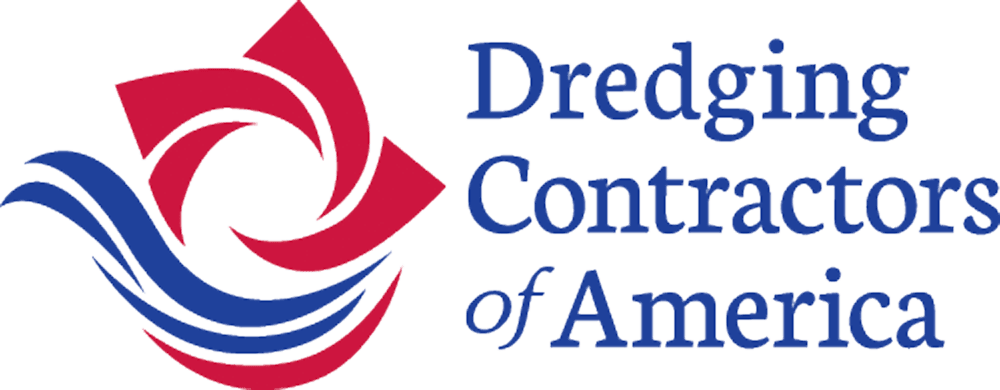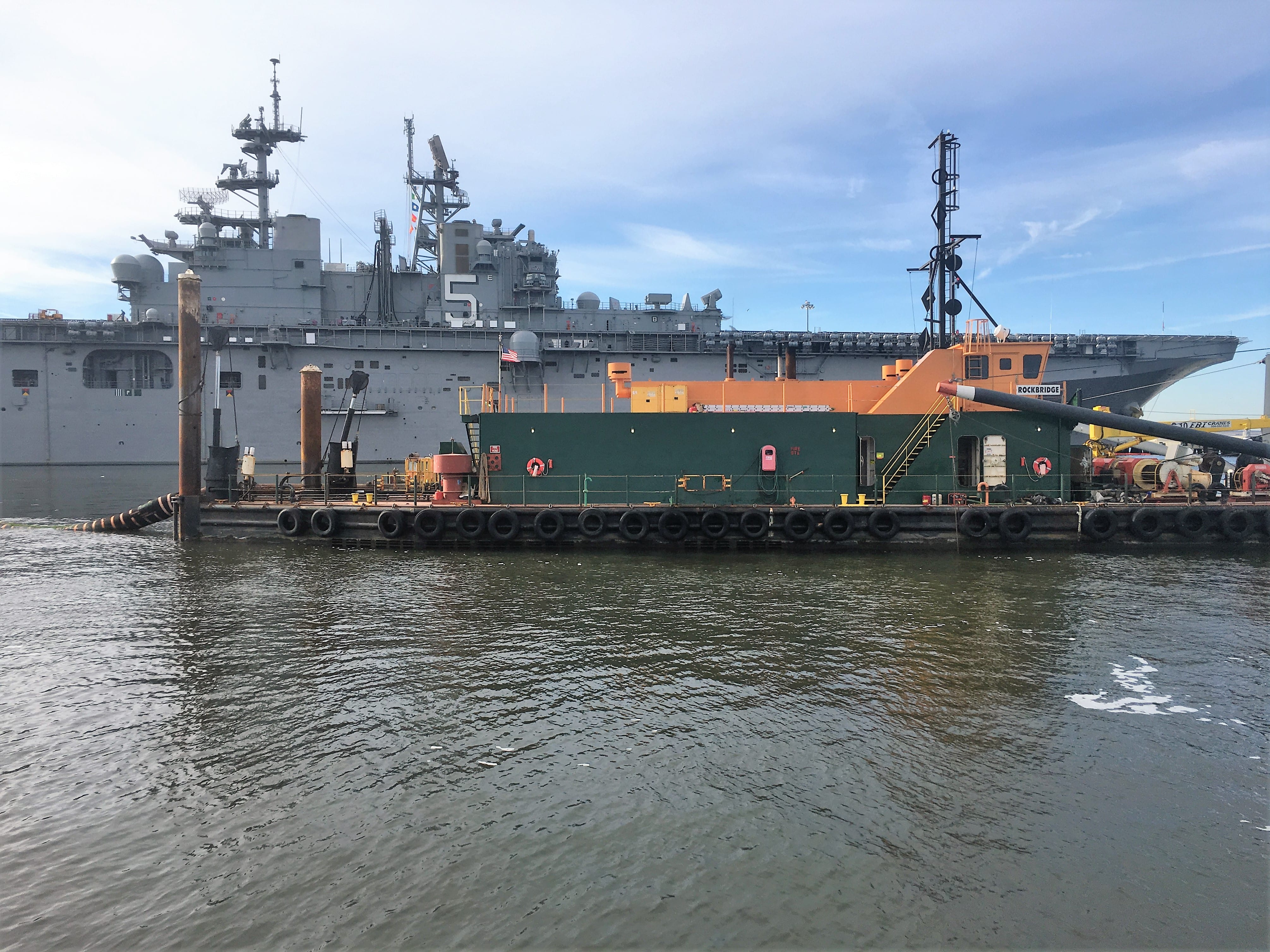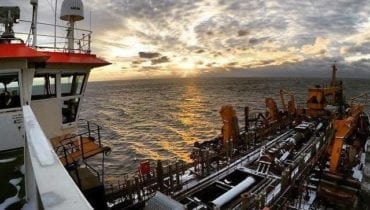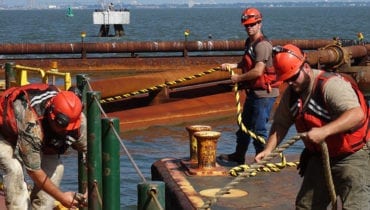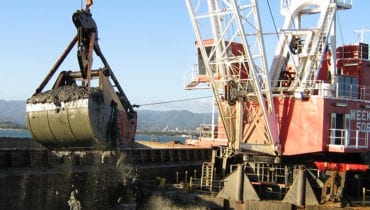U.S. Dredgers Keep America’s Ports and Waterways safe. . .
The Center for Strategic and Budgetary Assessments (CSBA) recently completed its historic study of the American maritime industry and national security. Titled “Strengthening the U.S. Defense Maritime Industrial Base,” the study made several key points about America’s Jones Act. The report is historic because it is the first major study of the entire American maritime industry and national security together in one setting.
With respect to the Jones Act dredging industry the authors found:
Jones Act Vessels Help Maintain U.S. Waterways and Keep America Secure
CSBA emphasized the role that American dredgers and salvage operators play in “maintaining waterways and shipping lanes,” particularly the “more than 400 ports and 25,000 miles of navigation channels throughout the United States.”
CSBA said, “A domestic dredging industry prevents the United States from depending on foreign companies to dredge its dozens of naval facilities, potentially opening up opportunities for sabotage or the depositing of underwater surveillance equipment.”
Other Key findings:
Jones Act Is an Important Part of America’s Defense Maritime Industrial Base and Should Be Maintained
CSBA said, “The U.S. maritime industry is essential to American prosperity and security,” summarizing the contributions of the domestic maritime industry this way:
Today, the domestic fleet provides the largest source of merchant mariners for U.S. surge sealift operations, supports shipbuilders that also construct government vessels, ensures the maintenance of the U.S. waterways and shipping lanes, and helps reduce the potential of foreign mariners illegally entering the United States.
Jones Act Mariners Are Crucial to National Security
CSBA drilled down on the importance of Jones Act mariners in a contingency, saying, “The 3,830 mariners that operate large, ocean-going ships in the domestic fleet constitute about 29 percent of overall number MARAD estimates would be needed to operate U.S. surge sealift during wartime or another contingency.” That 29 percent is the largest single commercial source of mariners. CSBA said that during Operation Desert Storm, “the crews of 13 foreign ships refused to go into a war zone and deliver their cargo. Not a single American crew refused.”
The Jones Act Helps Maintain Shipyards and Ship Repair Yards, Which Are Crucial to National Security
CSBA said, “The U.S. shipbuilding and repair industry is a major component of the defense maritime industrial base.” CSBA said:
[The shipbuilding industry] enables the United States to field and sustain one of the world’s largest navies, a coast guard that protects thousands of miles of U.S. coastline, and the domestic commercial fleet. Construction and repair shipyards also provide a critical backstop to American seapower, ensuring that the United States retains the capability to expand or recapitalize its Navy or Coast Guard without relying on other nations.
Shipyards that build Jones Act vessels are needed to build smaller but important government vessels, and “The Jones Act requirements provide an additional demand for these shipyards to sustain them between government orders.” CSBA found that “[w]ithout the Jones Act’s requirements … it is likely the U.S. government would have few, if any, shipyards available to episodically recapitalize its smaller vessels.”
Strengthening the U.S. Defense Maritime Industrial Base: A Plan to Improve Maritime Industry’s Contribution to National Security, by Bryan Clark, Timothy A. Walton, and Adam Lemon, February, 2020. CSBA. The full suite of materials delivered today by CSBA can be found here:



